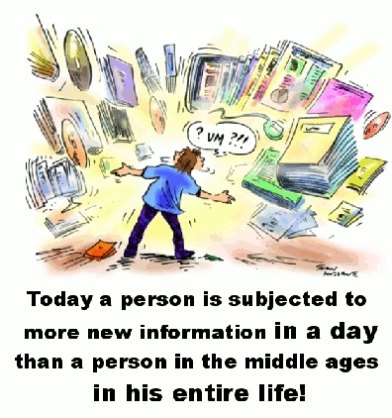Information overload is a problem that a large number of us face every single day. This is one of the biggest concerns of the modern, digital age and it’s something that can have a devastating effect on our health and on our mood.
Despite this though, many of wouldn’t describe ourselves as suffering from the condition, quite simply because we don’t really know what it is…

How do you know if you’re really suffering from information overload or if it’s just regular old ‘stress’?
Let’s take a look at specifically what information overload really is, what the main symptoms are and how it might be affecting your life.
What is Information Overload?
Information overload, also known as ‘information fatigue’, basically describes a situation where you begin to feel weighed down by the huge amount of data that you’re forced to deal with on a daily basis.
The most obvious source of this information is all our technology. At any time you might be looking at multiple different screens at once, you might be waiting for notifications from your smart device and you might be listening to music. That’s a lot of different data streams, all of which require concentration and all of which can create at least a small amount of stress.
The Signs and Symptoms
Thus, the main signs and symptoms of information overload tend to be somewhat similar to general stress/adrenal fatigue.
The thing to recognize is that each time you’re focussed on your screen, or you’re jolted awake by some kind of notification, this causes an elevation in stress hormones. At the same time, it requires mental energy, which of course is a finite resource.
This can then cause you to feel tired and ‘burned out’. At the same time, you’ll see the symptoms of chronic stress such as:
- Increased cardiovascular stress
- Blood pressure
- Tiredness
- Low mood
You might also find though that you start to get tired from focussing and decision making, which can ultimately leave you very much drained and make it hard for you to continue focussing and making decisions regarding other things. Thus you may find that you are slower to make decisions, that you are less motivated or even that you suffer with confusion and impaired vision.
If you find that you have no motivation in the evenings, that you feel almost incapable of making even the smallest decisions, or that you are constantly stressed – consider just how much information you are dealing with during the day!

